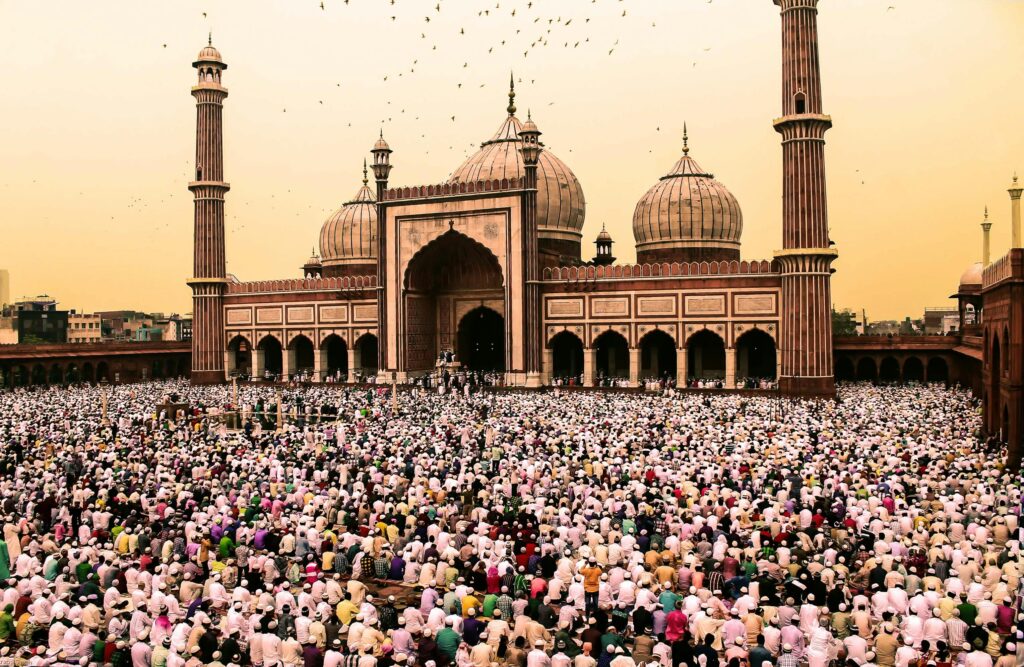Eid ul-Fitr is one of the most significant festivals in Islam, marking the end of the holy month of Ramadan. After a month of fasting, prayer, and spiritual reflection, Muslims around the world celebrate Eid with joy, gratitude, and unity. But what is the true meaning of Eid ul-Fitr, and why is it such a cherished occasion? Let’s explore the spiritual, cultural, and social importance of this festival.

The Significance of Eid ul-Fitr in Islam
A Gift from Allah for Devotion
Festival of Eid ul-Fitr:Eid al-Fitr, meaning”festival of breaking the fast,” marks the end of Ramadan. Eid ul-Fitr is a celebration of gratitude to Allah for granting Muslims the strength to complete their fasts during Ramadan. The word “Eid” means festival or celebration, and “Fitr” refers to breaking the fast.
In the Quran, Allah says:
“The month of Ramadan [is that] in which was revealed the Qur’an, a guidance for the people and clear proofs of guidance and criterion. So whoever sights [the new moon of] the month, let him fast it…” (Quran 2:185)
Eid symbolizes the completion of this spiritual journey and the reward for those who persevered through fasting.
A Day of Gratitude and Forgiveness
Eid serves as a reminder of the importance of gratitude, forgiveness, and compassion. Muslims seek forgiveness from Allah for their past mistakes and show gratitude for the opportunity to renew their faith. All Muslims across the globe celebrate the joyous Festival of Eid ul-Fitr with love, gratitude, and togetherness!As the Prophet Muhammad (PBUH) said:
“Whoever fasts during the month of Ramadan with faith and seeking reward, his past sins will be forgiven.” (Sahih Bukhari)
Festival of Eid ul-Fitr: Traditions and Customs
Performing the Eid Prayer
On the morning of Eid, Muslims gather for a special prayer at mosques or open fields. This prayer is a community event, signifying unity in faith. It is followed by a sermon and a supplication for all Muslims.
Giving Zakat al-Fitr (Charity)
Before the Eid prayer, Muslims are required to give Zakat al-Fitr, a form of charity that helps the less fortunate. It ensures that everyone, regardless of their financial situation, can join in the celebrations.
A Feast to Celebrate
The day is marked by family gatherings, feasts, and festive meals. Traditional dishes vary across cultures, but dates, sweets, and savory foods are commonly enjoyed during the day. The Iftar meal on Eid, unlike the one in Ramadan, is full of joyous abundance, symbolizing the freedom from fasting.
Festival of Eid ul-Fitr: Around the World
A Global Celebration of Faith
While the customs of Eid may differ from country to country, the spirit of the festival remains the same. Whether in the bustling streets of Cairo, the peaceful parks of Jakarta, or the crowded mosques of New York, Muslims across the world come together to celebrate the end of Ramadan.
Community and Charity
Eid is also an opportunity to strengthen community ties. Families exchange gifts, visit relatives, and spend quality time together. Charity plays a significant role, with many Muslims making donations to various causes to ensure that everyone can partake in the joy of Eid.
Conclusion
Eid ul-Fitr is not just a celebration of the end of Ramadan; it is a celebration of spiritual renewal, compassion, and community. It is a day to give thanks for the blessings of life, to seek forgiveness, and to spread love and kindness to those in need. As Allah says in the Quran:
“And when you are greeted with a greeting, greet with a better greeting or return it. Indeed, Allah is ever, over all things, an Observer.” (Quran 4:86)
Let this Eid be a reminder to cherish our faith, strengthen our bonds, and share our blessings with others. Eid Mubarak! Explore Our Books Also.
Explore More about Islam : Click Here.
